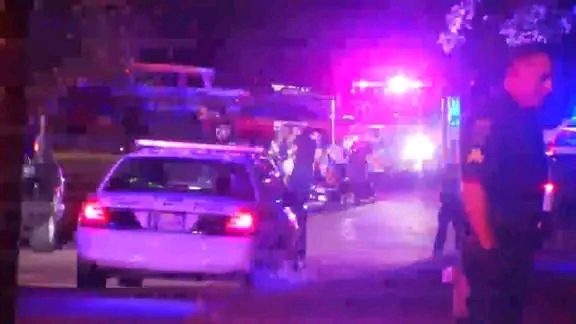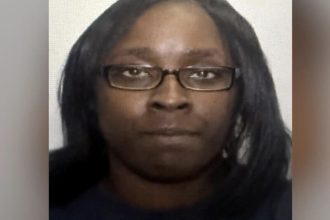A Clark County grand jury has formally indicted 36‑year-old Aaron Jackson Jr. on an open murder charge in connection with the June death of 27‑year-old Winston Ricketts, whose body was found shot in a remote desert area near Sloan. The quiet case broke open again this week after months of investigation, and Jackson is now being held without bail ahead of a December 1 court appearance.
According to a Las Vegas Metropolitan Police Department statement, law enforcement responded around June 21 to a location near the 17,000 block of South Las Vegas Boulevard, close to Sloan, where Ricketts was discovered suffering from obvious gunshot wounds. The Clark County coroner later confirmed that Ricketts died of multiple gunshot wounds.


Sources reporting on the case say detectives built their case using a mix of anonymous tips, digital communications, and other documents—all of which ultimately guided them to Jackson. Court testimony reportedly revealed that Ricketts was shot several times, including in the back.
Jackson was arrested on October 26 under a warrant, and a judge refused to grant bail, signaling the seriousness with which prosecutors are treating the charges. The grand jury’s “open murder” indictment means prosecutors haven’t yet specified the degree of murder, giving them legal flexibility as the investigation proceeds.
Open murder charges in Nevada are often used when the prosecution believes there’s enough evidence to allege a killing, but they want to leave room to adjust the charges (for example, to first‑degree murder or a lesser included offense) depending on how the case unfolds.
This case originally drew attention in June when local media outlets, like Hoodline, reported on the discovery. At the time, KTNV also covered the investigation, noting that homicide detectives were working the scene and asking the public for help. But after that early flurry, there was limited public information until now.
With the indictment now filed and Jackson in custody, the case appears to be entering a more critical phase. The December court date will likely bring more clarity on the evidence and how prosecutors intend to move forward—and for those who knew Ricketts, this may finally be a long-awaited turn toward justice.



